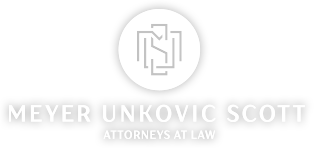Compensation Payments
Pennsylvania payors who, in connection with their businesses, make certain compensatory payments to non-resident individuals or to disregarded entities (i.e., single member LLCs) owned by a non-resident individual are subject to the withholding and reporting rules. The types of payments include:
- Non-employee compensation;
- Independent Contractor payments;
- Consulting Fees;
- Director Fees; and
- Other compensatory payments.
Lease Payments
Payments made pursuant to a lease to non-resident individuals, trusts, estates are subject to the withholding and reporting rules. Such payments include:
- Rents;
- Royalties; and
- Bonus Payments.
NOTE: The lease withholding requirements do not seem to apply to payments to disregarded entities owned by non-resident individuals.
Withholding Requirements
Withholding is required if the annual payments to a non-resident are $5,000 or more. Pennsylvania personal income tax of 3.07% must be withheld and remitted to the Pennsylvania Department of Revenue.
If the payor fails to withhold the required tax, the Department of Revenue can assess and collect the tax due from the payee or lessor from the payor. In addition, if the tax is paid by the non-resident payee or lessor, the Department of Revenue may still collect interest and penalties from the payor or lessee who failed to withhold the required tax.
Reporting Requirements
Every payor who is required to withhold tax is also required to report the compensatory or lease payments on a Form 1099-MISC. Form 1099-MISC along with Pennsylvania Form REV-1667R must be filed with the Pennsylvania Department of Revenue on or before January 31 of the year following the year of payment.
Form 1099-MISC must be provided to the payee by March 1 of the year following the year of payment.
Payors and lessees who are subject to the withholding and reporting requirements must apply for and obtain a 1099-MISC Withholding Account with the Department of Revenue by completing a Form PA-100 which can be done at www.pa100.state.pa.us.
The amount of required withholding each year will govern whether payors must remit withholdings semi-weekly, semi-monthly, monthly or quarterly. Payors also may be required to file and remit withheld tax electronically.
Conclusion
If you make payments to out-of-state service providers (such as consultants or independent contractors) or landlords, you may be subject to the above rules. If you are uncertain if you will exceed the $5,000 annual payment threshold to any single non-resident payee or lessor, you should give serious consideration to complying with the withholding requirements or run the risk of exposing yourself to liability for the Pennsylvania taxes, penalties and interest due on such payments.
For more information about this, or any other tax matter, please contact attorney Kevin Israel at the phone number and e-mail address listed below.
This material is for informational purposes only. It is not and should not be solely relied on as legal advice in dealing with any specific situation.

